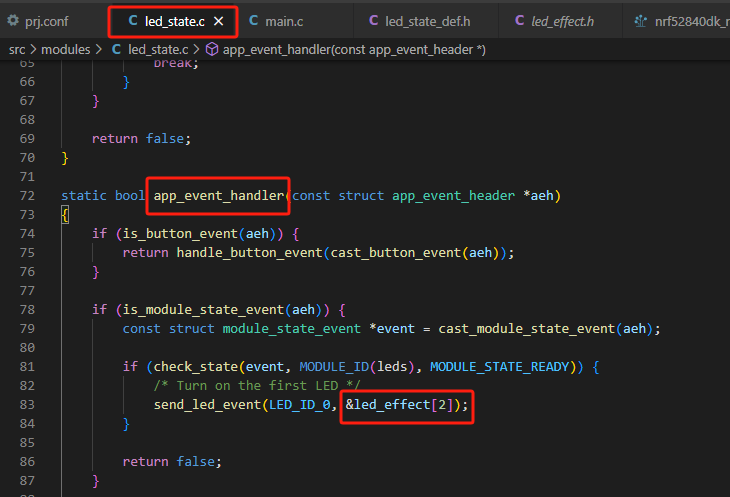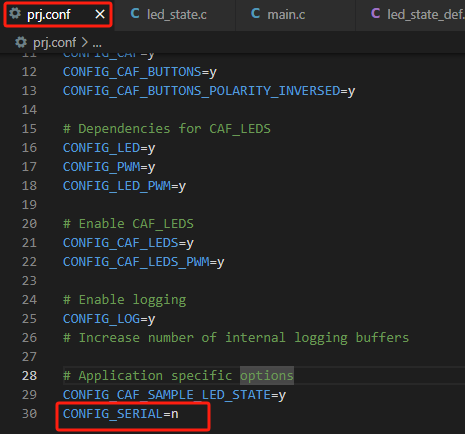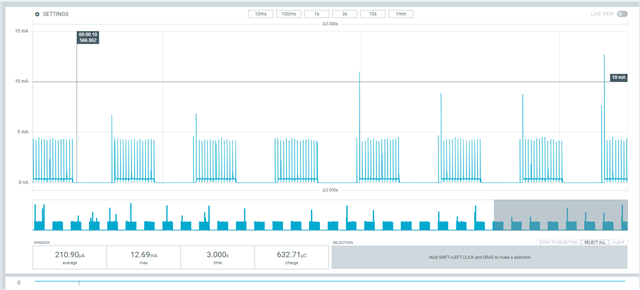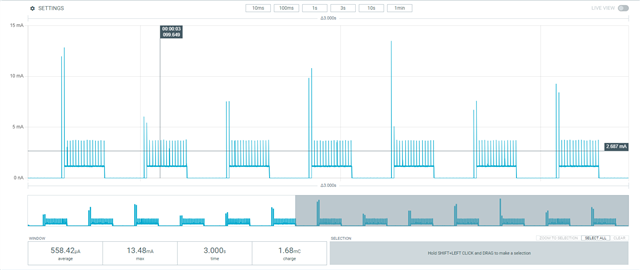Hello, our company has modularized and mass-produced the nRF52840 modules. However, during the customer's development using Zephyr for module firmware development, we have encountered a situation where certain modules exhibit abnormally high power consumption. The issue is observed when using Zephyr for module firmware development, and abnormal power consumption is noticed in some modules, while others exhibit normal power consumption. The power consumption of the affected modules is significantly higher, and we have reproduced this issue in Nordic's sample code. Since the customer's Zephyr firmware project is confidential, I have replicated the issue using Nordic's example code. Below, I provide the conditions under which the issue can be reproduced.
The NCS development is based on version V2.4.1. The project example to reproduce the issue is located in nrf\samples\caf. However, certain modifications are required in specific parts of this process. The default state of the LED in the project is to turn it on, but to replicate the issue, it is necessary to implement a breathing effect for the LED. Additionally, in the project configuration, the serial port needs to be disabled, as shown in the diagram below:


The power consumption of a normal module is shown in the following figure.

The power consumption of an abnormal module is depicted in the figure below.

I have not conducted power consumption testing on the nRF52840 DK board because it is not easy to operate. However, the power consumption of our normal modules is generally consistent. The power consumption of the abnormal modules provided by the customer differs by several hundred microamperes. Currently, we have only received two abnormal modules. Interestingly, the three existing test modules we have do not exhibit this abnormal behavior. The hardware design of the existing test modules and the modules delivered to the customer is identical.
I am unsure where to start troubleshooting as I do not know the specific points of the issue. However, my intuition suggests that it may be related to the DCDC part of the nRF52840. I hope you can provide a solution and explain the reasons for the inconsistent chip power consumption. This information is crucial for us to communicate effectively with the customer. Thank you very much!
